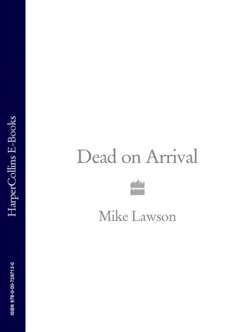Читать книгу Dead on Arrival - Mike Lawson - Страница 15
Оглавление11
Youseff Ibrahim Khalid was so frightened he could hardly walk. He’d already vomited once since arriving at LaGuardia. He would have vomited again, but he had nothing left in his stomach. As he approached the security checkpoint, he could feel the sweat soaking into his shirt and pouring down his forehead. He knew he had to try to appear calm, but he couldn’t. He couldn’t stop the trembling in his legs. He couldn’t stop the sweat rolling down his face.
He was certain the TSA agents at the checkpoint would stop him because of the way he was acting. However, as fate would have it, a snowstorm had hit the Midwest and this had caused a number of flights to be delayed or canceled – although Youseff’s flight was not one of them. So it was unusually busy at the airport that morning, there were long lines of upset, impatient people everywhere, and the agents were rushing their inspections to avoid further delays. It was God’s will.
Youseff placed his carry-on bag on the conveyor belt and moved slowly forward to walk through the metal detector. He had already made sure he had nothing on him that would set off the detector. His pockets were completely empty; he had even removed his belt and thrown it into the garbage can in the airport restroom. All his possessions were in the carry-on bag. He expected that they would search the bag and pat him down because of his name, but this time they didn’t. He simply passed through the metal detector, picked up his carry-on bag, and put on his shoes.
It was all God’s will.
The small jet used to shuttle passengers between New York and Washington had twelve rows, two seats on the starboard side of the plane, one seat on the port side. He was in the single seat in row eight. A woman and her child were sitting across the aisle from him, the child a tiny blond-haired girl no more than seven. He couldn’t look at the child.
He sat there with his eyes closed as the plane was being prepared for takeoff and thought of his wife and his own children, his beautiful children. Would his wife miss him when he was gone? Probably not, he’d treated her so badly the last two years.
The plane rose into the sky over New York. The stewardess informed the passengers that they would arrive at Reagan National Airport in less than an hour. When the seat-belt light was extinguished, Youseff sat a minute, tried and failed to remember a prayer from his childhood, and then rose from his seat. He pulled his carry-on bag from the overhead bin and walked back to the restroom. As he walked down the aisle he saw more children. The plane seemed to be filled with children.
Inside the restroom, he removed from his bag the pieces that made up the pistol. The pistol was constructed of some sort of plastic, a polymer that was very tough, and the gun’s components resembled common objects: the barrel was the handle to a hairbrush; the trigger was the earpiece to a pair of sunglasses; three small-caliber plastic bullets and a spring had been packed into a container that appeared to be a ballpoint pen. Youseff assembled the pistol with trembling hands and loaded it, then looked into the mirror. His face was unshaven, his hair was sticking up, and his eyes seemed to have swelled in their sockets, as if they were about to explode from all the emotions he was trying to suppress. He looked like a madman.
But it was time. It was time to do what he had to do. Then it would all be over.
He left the restroom and walked slowly up the aisle of the plane, the pistol in the pocket of his jacket. He dropped his carry-on bag on the seat where he’d been sitting and continued up the aisle toward the stewardess, who was standing by the coffee mess near the cockpit door. He approached as if he was going to ask for something, then grabbed her by the arm, jerked her in front of him, and placed the barrel of the gun against her head. He heard people start to scream and then he started screaming too, telling the passengers not to move, not to resist. At least that’s what he thought he said. He wasn’t sure, there was such a roar inside his head.
He dragged the stewardess backward until the reinforced cockpit door was at his back and he began to kick at the door with his right foot, yelling for the pilot to open up. He waved the pistol at the passengers to keep them in their seats, and then placed it again against the stewardess’s head. He heard someone inside the cockpit say something and he turned his head slightly, to hear better, to yell again at the pilot, to tell him he would kill the stewardess if he didn’t open the door.
Youseff Khalid didn’t see, sitting in a single seat in row five, no more than six feet from him, the U.S. air marshal raising his arm. He didn’t see the pistol in the man’s right hand. He didn’t feel the bullet that entered his head and blew his brains all over the cockpit door.
